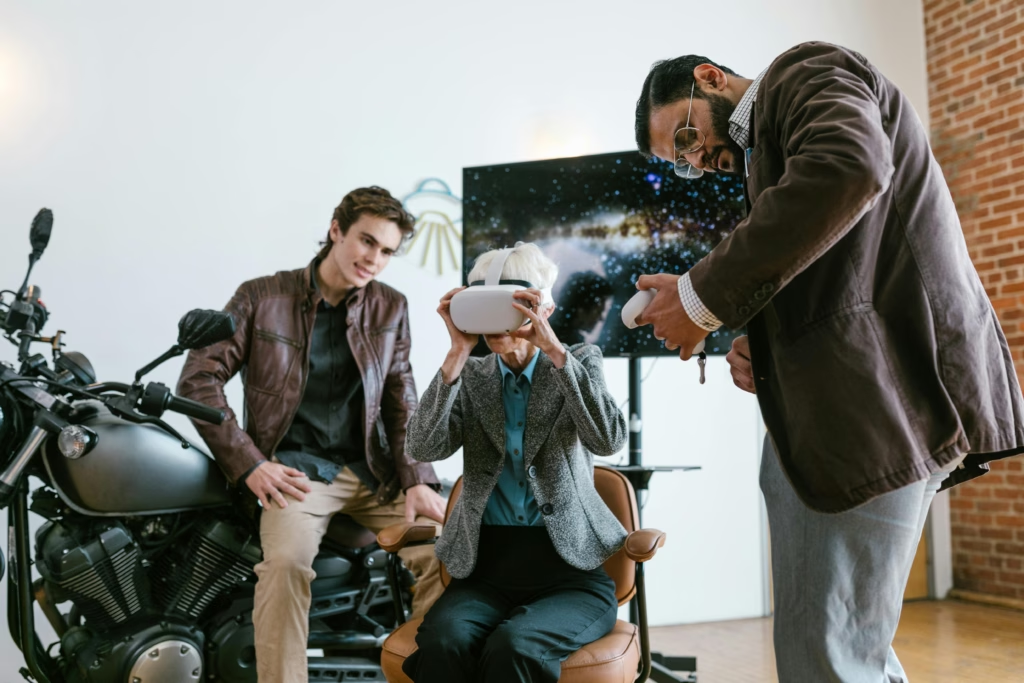The metaverse, a network of persistent, immersive virtual worlds, is rapidly evolving from a futuristic concept to a tangible reality. While often associated with gaming and entertainment, the metaverse holds immense potential for transforming various sectors, including government services. Imagine accessing government portals, attending town hall meetings, or even renewing your driver’s license from the comfort of your virtual home. This article explores how governments can leverage the metaverse to enhance accessibility, engagement, and efficiency in public service delivery.
Enhancing Accessibility and Inclusivity:
One of the most significant benefits of the metaverse for government is its potential to break down geographical barriers. Citizens can access services regardless of their location, eliminating the need for long commutes or physical presence at government offices. This is particularly crucial for individuals in remote areas or those with mobility limitations. The metaverse can also offer multilingual support, making government services accessible to a broader population. Imagine a virtual town hall meeting where real-time translation is available, ensuring everyone can participate and voice their concerns.

Furthermore, the metaverse can create a more inclusive environment for citizens who may feel intimidated or uncomfortable interacting with government officials in person. The anonymity offered by avatars can encourage greater participation and open communication. Individuals can express their opinions and concerns without fear of judgment or discrimination.
Streamlining Bureaucracy and Improving Efficiency:
The metaverse can streamline bureaucratic processes and improve efficiency in government operations. For example, citizens could submit applications, pay taxes, and access official documents through secure virtual portals. This can significantly reduce paperwork, administrative overhead, and processing times. Smart contracts, powered by blockchain technology, can automate many government transactions, making them more transparent and secure. Imagine renewing your vehicle registration in a matter of minutes through a metaverse portal, without having to wait in line at the DMV.

Moreover, the metaverse can facilitate better collaboration and communication within government agencies. Virtual meetings and training sessions can be conducted more efficiently, saving time and resources. Government officials can also use the metaverse to visualize and analyze data, leading to better decision-making.
Creating Engaging Citizen Experiences:
The metaverse offers governments the opportunity to create more engaging and interactive experiences for citizens. Virtual museums, historical sites, and cultural events can be made accessible to a global audience. Citizens can explore these virtual environments, learn about their heritage, and interact with historical figures. This can foster a stronger sense of community and civic pride.

Furthermore, the metaverse can be used to educate citizens about government policies and programs. Interactive simulations and gamified learning experiences can make complex information more accessible and engaging. This can empower citizens to make informed decisions and participate more actively in the democratic process.
Addressing Challenges and Considerations:
While the metaverse offers numerous opportunities for government, there are also challenges and considerations that need to be addressed. These include:
- Digital Divide: Ensuring equitable access to the metaverse for all citizens, regardless of their socioeconomic status or technological literacy, is crucial. Governments may need to invest in infrastructure and provide digital literacy training to bridge the digital divide. You can learn more about the digital divide and its impact on access to services on websites like The World Bank.
- Data Privacy and Security: Protecting citizens’ personal data in the metaverse is paramount. Governments must implement robust security measures and adhere to strict data privacy regulations. The Electronic Privacy Information Center (EPIC) provides valuable resources on data privacy and security.
- Accessibility for People with Disabilities: The metaverse should be designed to be accessible to people with disabilities. This includes providing alternative input methods, visual and auditory aids, and other assistive technologies. The Web Accessibility Initiative (WAI) offers guidelines and resources for creating accessible web content.
- Ethical Considerations: Governments need to address the ethical implications of using the metaverse for public service delivery. This includes issues such as bias in algorithms, manipulation of information, and the potential for misuse of virtual identities.
The Future of Government in the Metaverse:
The metaverse is still in its early stages of development, but its potential to transform government services is undeniable. By embracing this technology and addressing the associated challenges, governments can create a more accessible, efficient, and engaging experience for citizens. As the metaverse continues to evolve, we can expect to see even more innovative applications emerge, shaping the future of governance in profound ways. Keep up-to-date on metaverse developments by checking resources like Metaverse Standards Forum. The journey into the metaverse offers governments a chance to reimagine public service for the digital age.



[…] and international libraries, vendors, and Smithsonian staff to acquire content and ensure seamless access to the institution’s rich resources. The ideal candidate will possess strong project […]
[…] director of telehealth services at a community health center in the Bronx. We’re working to provide access to technology and training for our patients so they can effectively utilize these […]
[…] A commitment to public service […]